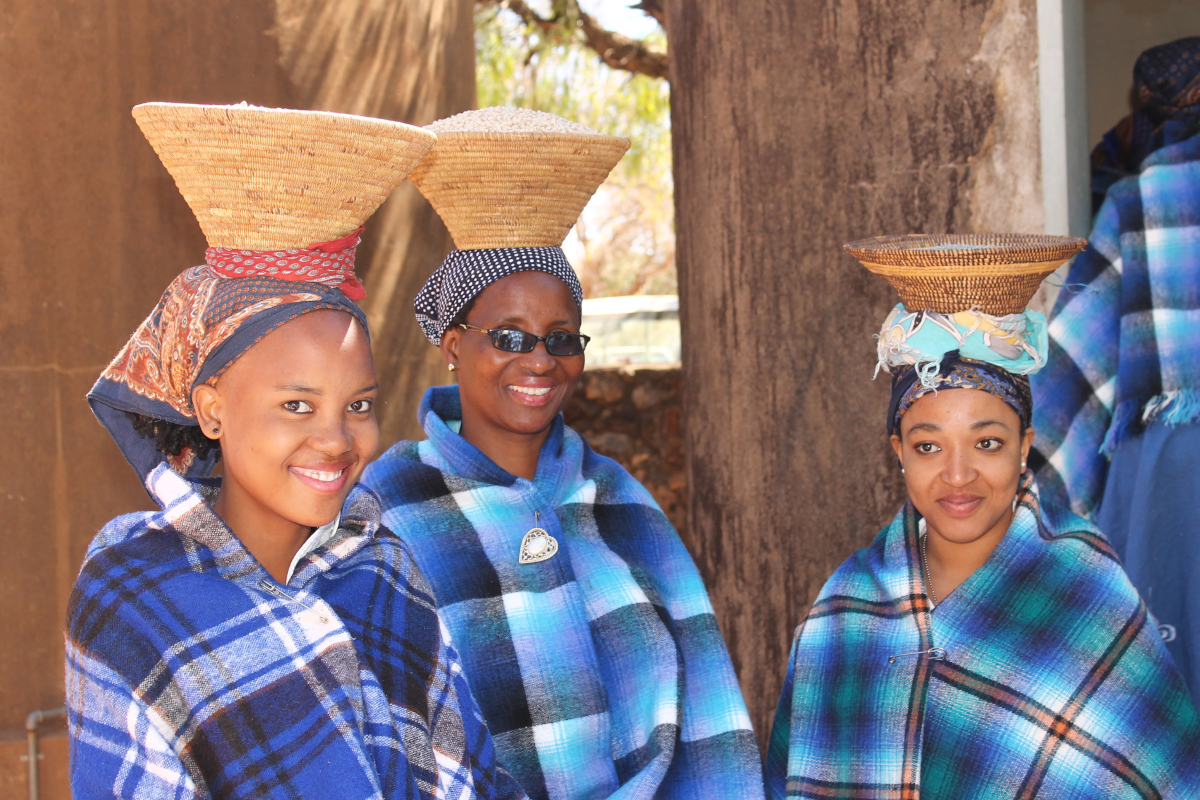How Our Community Is Organised
Life in Gamalete is shaped by tradition and kinship. Villages are organised into wards (dikgoro), which bring families together under shared leadership. Local chiefs (dikgosana) oversee day-to-day matters, all under the guidance of the paramount chief. Although the Balete are the majority, the district is also home to other groups, such as Batlokwa, BaKwena, BaRotsi, and BaZezuru, giving the community a spirit of diversity and exchange.
Traditions That Endure
One of the most important traditions is the practice of initiation schools; The Bogwera which prepares young men for adulthood, while The Bojale does the same for women. It is to be noted that in recent years, even older men and women of whom may never had a chance to do so at their time, are gradually getting into these schools. These rites of passage carry knowledge, values, and a sense of belonging from one generation to the next.
Agriculture is at the heart of daily life as has been traditionally. Fields of sorghum, maize, beans, pumpkins, and melons surround the villages, and livestock such as cattle, goats, pigs, and poultry provide food and income. Mogobane, with its irrigation schemes, has become the agricultural hub of the district.
Culture is also expressed through the arts. Skills such as carpentry, pottery, and basket weaving are still practised, while poetry, music and dance bring people together.
Performances with instruments like ditlhaka, traditions like dikoma and mogolokwane are treasured. Young people continue to shine in culture and performing arts, carrying these talents into modern arenas.
Other Traditions Include:
- Traditional medicine and customs like dipeolo (cleansing of the spouse upon the demise of their partners.)
- Cleansing the area to remove bad luck and unwanted spirits (go ntsha dibeela le difawa).
- Traditional healing of sick individuals
- Traditional protection against spirits to prevent witchcraft (Go tlhapisa le go thaa malapa)
Spiritual Life
Faith in Gamalete blends tradition with Christianity. Many families continue to honour ancestral customs and traditions, at the same time; Christianity has been a part of life since 1865, when Lutheran missionaries arrived.
Today, the district is home to a wide variety of churches, from Lutheran and Roman Catholic Church to Zion Christian Churches, United Congregational Church, Seventh Day Adventist Church, Baha’i, Spiritual Churches and others, reflecting both history and diversity.
Education and Health
Schools are central to community life. Gamalete has both government/private and primary/secondary schools, as well as a vocational brigade institution.
Special education centres, including the Ramotswa Centre for the Deaf and Thuto-Boswa for people with disabilities, highlight the commitment to inclusion. Health care is provided through the Bamalete Lutheran Hospital and a number of clinics spread across the villages both government and private.
Everyday Life and Modern Challenges
Gamalete has embraced modern development, with industries in Taung and businesses in Ramotswa. Modern housing and services sit alongside fields and traditional homesteads, showing how old and new coexist.
And yet, challenges remain: infrastructure such as roads and water systems need improvement, unemployment is an issue, and social problems like gender-based violence and substance abuse affect families.
Local trusts, farmers’ associations, and community organisations play an important role in addressing these concerns. With strong traditional leadership and community involvement, there is a shared sense of resilience and hope for a better future.
A Living Identity
To know the Balete is to see a people who carry their traditions with pride while stepping into modern life with confidence. Initiation rites, farming, music and art keep cultural roots alive, while education, religion, and industry provide new opportunities. Despite challenges, the spirit of unity and the leadership of Kgosi-Kgolo Kgosi Mosadi Seboko continue to guide Gamalete forward.
Visitors and newcomers alike will find a community deeply connected to its past, yet embracing today’s opportunities and open to the possibilities of tomorrow.
